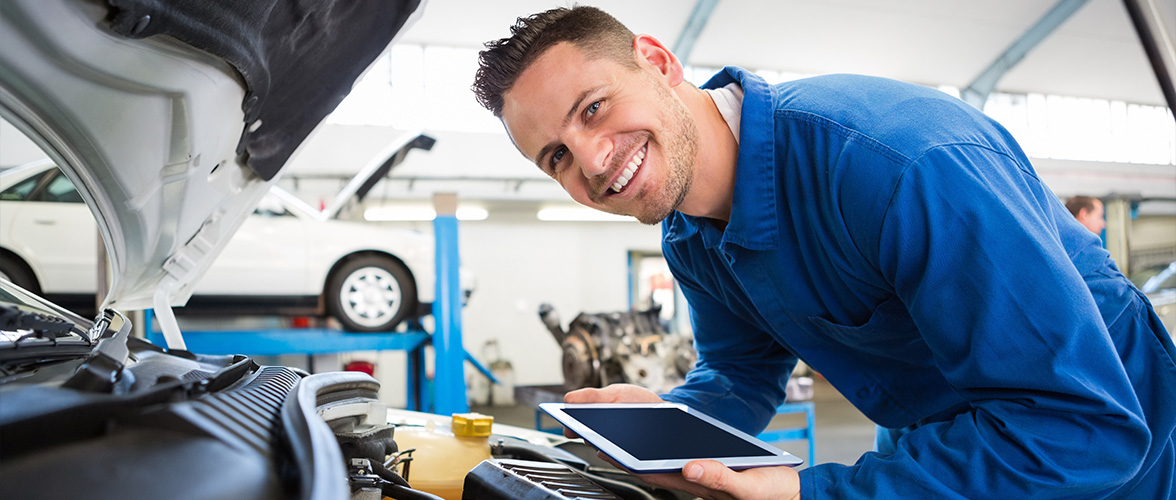All Categories
Featured
Brakes are probably the most essential security feature of any kind of automobile. Without trusted brakes, also the most powerful vehicle can become a threat on the road.
- The Relevance of Routine Brake Inspections. Brakes undertake continuous wear and tear with every use, whether you're driving at broadband on the freeway or cruising through city streets. In time, brake pads, rotors, and other parts put on down, which can impact braking efficiency. Without routine evaluations, you might not see the progressive decrease in efficiency until it's also late.
Routine brake evaluations allow you to catch problems early, ensuring that your brakes remain receptive, trustworthy, and risk-free. Prompt examinations can additionally conserve you cash by addressing small issues prior to they end up being pricey repairs.
- Typical Indications That Your Brakes Required Focus. While regular brake evaluations are very important, there are some indication you can keep an eye out for to know when it's time to set up a check-up:
Squealing or Grinding Sounds: High-pitched squeaks or grinding noises when applying the brakes are often signs that your brake pads are worn out and need substitute. Resonance or Pulsation: If you really feel vibrations in the guiding wheel or the brake pedal, it could show deformed blades, which may need resurfacing or changing. Soft or Squishy Brake Pedal: If the brake pedal really feels unusually soft or squishy, there may be air in the brake lines or a trouble with the master cylinder. Pulling to One Side: If your car pulls to one side while stopping, this might be brought on by unequal brake pad wear or a problem with the brake liquid. Boosted Quiting Range: If it takes longer to stop than common, it may show that the brake pads are used, the liquid is low, or the blades are harmed. If you see any one of these signs and symptoms, it's best to have your brakes evaluated quickly.

- Secret Elements Checked During Brake Inspections. During a brake assessment, a specialist will inspect several crucial components of the braking system to ensure every little thing is working properly. Right here are the key components involved:
Brake Pads: One of the most typical reason for bad braking performance is worn-out brake pads. Examining the thickness of the pads is a concern throughout every inspection. Brake Rotors: Rotors should be smooth and without grooves or fractures. Any type of considerable damages to the blades could bring about jeopardized stopping efficiency and uneven pad wear. Brake Fluid: Low or polluted brake liquid can impair stopping performance. The professional will certainly examine the fluid levels and high quality and change it if needed. Brake Lines and Hoses: Brake lines ought to be totally free of leaks or fractures. Any damages to the lines can cause loss of brake fluid, leading to brake failure. Brake Calipers: The calipers apply stress to the brake pads. They should be inspected for indicators of wear or leakages to ensure they are functioning properly. Regularly examining these components assists maintain your brake system in peak condition, allowing you to quit your auto safely and effectively.
- Just how Commonly Should You Have Your Brakes Checked? The basic referral is to have your brakes evaluated a minimum of once a year or every 12,000 miles, relying on your driving habits. However, certain driving problems may call for even more constant examinations:
Rush Hour: If you usually drive in stop-and-go traffic, your brake pads will put on down quicker. Mountain Driving: Driving on steep roadways needs even more constant stopping, which can create your brakes to put on faster. Towing or Hauling Heavy Loads: If you routinely carry hefty loads, your brakes will experience a lot more anxiety and require even more constant inspections. If you observe any one of the indication mentioned previously, do not await the next scheduled assessment-- have your brakes inspected immediately.
- The Effects of Overlooking Brake Inspections. Neglecting routine brake inspections can lead to major effects. A failing brake system can result in reduced quiting power, which enhances your danger of mishaps.
In the worst instance, driving with harmed brakes can lead to complete brake failing, placing you and various other vehicle drivers in danger. Routine brake examinations are a little financial investment that can save your life and protect against pricey fixings.
- Conclusion: Keep Safe with Routine Brake Inspections. Brakes are not something you wish to take possibilities with. A dependable stopping system is necessary for secure driving, and routine brake evaluations are a simple way to guarantee that your car quits when you need it most. By remaining on top of brake maintenance, expecting cautioning indications, and having your brakes examined at the advised intervals, you'll protect both your vehicle and your safety.
Do not wait up until your brakes begin to fall short-- schedule normal brake assessments and maintain your vehicle in ideal problem for many years ahead.
Latest Posts
Learn About Auto Services & More: Complete Services Guide from Montclare Auto Repair
Learn About Montclare Auto Repair’s Premier Services and Why Drivers Rely On Them
Find Montclare Auto Repair’s Leading Car Care Solutions and Why Drivers Trust Them
More
Latest Posts
Learn About Auto Services & More: Complete Services Guide from Montclare Auto Repair
Learn About Montclare Auto Repair’s Premier Services and Why Drivers Rely On Them
Find Montclare Auto Repair’s Leading Car Care Solutions and Why Drivers Trust Them
